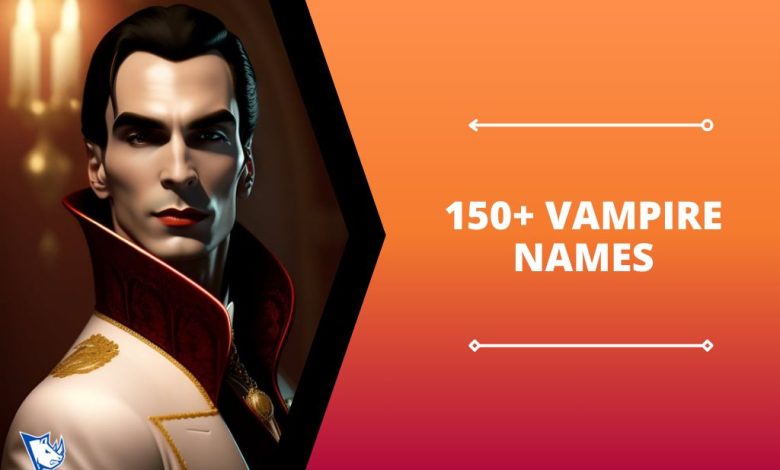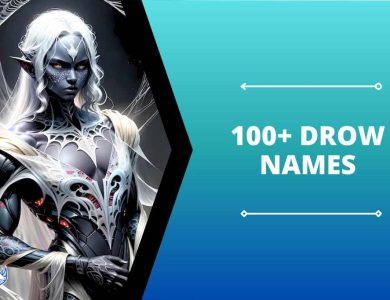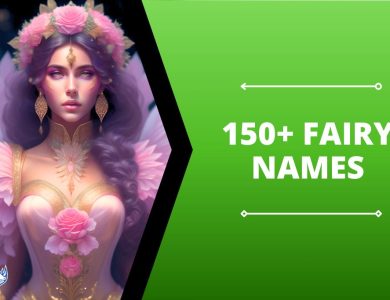150+ Vampire Names to Haunt Your Dreams

Vampires have captivated the human imagination for centuries, weaving their way through folklore, literature, and film with an enigmatic and often chilling presence. These creatures of the night, often depicted as immortal beings with a thirst for blood, have become iconic symbols of fear, seduction, and the supernatural. Vampire names, in particular, carry a weight of history and mystery, often reflecting their dark allure and the cultures from which they emerge. From ancient myths to modern media, the names of vampires are carefully chosen to evoke a sense of otherworldly power and timeless elegance. These names can be hauntingly beautiful or ominously foreboding, each one telling its own story of darkness, survival, and the eternal struggle between good and evil. As we delve into the world of vampire names, we uncover not just a list of monikers but a rich tapestry of stories that reflect our deepest fears and fascinations with the unknown.
Vampire Names
- Dracula: “Son of the Dragon”, Romanian, popularized by Bram Stoker’s novel.
- Carmilla: Unknown, possibly derived from “Carmel” meaning garden. Irish, from Sheridan Le Fanu’s novella.
- Lestat: Created name. French, from Anne Rice’s “The Vampire Chronicles”,
- Selene: “Moon”, Greek, used in modern vampire fiction.
- Raven: A large, black bird associated with mystery. English, common in vampire lore.
- Vladimir: “Ruler of the world”, Slavic, often associated with vampires due to Eastern European folklore.
- Mina: People’s love. German/English, from “Dracula” by Bram Stoker.
- Ambrogio: “Immortal”, Italian, from ancient vampire legends.
- Varney: Derived from a place name. English, from “Varney the Vampire” penny dreadful.
- Lilith: “Night monster” or “ghost”, Jewish mythology, often associated with vampirism.
- Alucard: “Dracula” spelled backward. Popularized by various media as a nod to Dracula.
- Strahd: Created name. From Dungeons & Dragons, Ravenloft campaign.
- Isabella: “Pledged to God”, Italian/Spanish, popular in vampire romance fiction.
- Eric Northman: Names are traditional; no specific meaning tied to vampirism. Scandinavian, from “True Blood” series.
- Blade: Sharp cutting instrument. English, from the Blade film series about a vampire hunter.
- Spike: Sharp point. English, from “Buffy the Vampire Slayer”,
- Angelus: “Angel”, Latin, from “Buffy the Vampire Slayer” and “Angel”,
- Akasha: “Ether” in Sanskrit. Egyptian mythology, popularized by Anne Rice’s “Queen of the Damned”,
- Damon: “To tame”, Greek, used in vampire fiction like “The Vampire Diaries”,
- Sanguina: Derived from “sanguine,” meaning optimistic or blood-red. Latin, a fitting name for a vampire.
- Damon: “To tame”, Greek, popularized in vampire fiction for its dark allure.
- Sanguina: “Bloodthirsty”, Latin, evoking the essence of vampirism.
- Lucius: “Light”, Latin, ironic for creatures of the night.
- Marius: “Male”, Latin, used in Anne Rice’s Vampire Chronicles.
- Niklaus: “Victory of the people”, German, from the TV show “The Originals”,
- Serana: Created name. From the game Elder Scrolls V: Skyrim.
- Thanatos: “Death”, Greek, fitting for a vampire’s immortal nature.
- Viktor: “Conqueror”, Russian, common in vampire lore for its strength.
- Xander: “Defender of the people”, Greek, used in modern vampire stories.
- Yvette: “Yew tree”, French, often found in gothic vampire tales.
- Zephyr: “West wind”, Greek, symbolizing the silent movement of vampires.
- Aurelia: “The golden one”, Latin, denotes beauty and allure.
- Basil: “Royal, kingly”, Greek, associated with vampire nobility.
- Cassius: “Hollow”, Latin, reflecting the emptiness within vampires.
- Dorian: From the Dorian tribe; associated with beauty and youth. Greek, popularized by Oscar Wilde’s character.
- Elena: “Shining light”, Greek, often used in vampire romance fiction.
- Felix: “Happy, fortunate”, Latin, ironic for a creature of darkness.
- Gaius: “To rejoice”, Latin, used for ancient or powerful vampires.
- Helena: “Light”, Greek, common in stories with tragic vampire characters.
- Ivan: “God is gracious”, Russian, used for Slavic vampire tales.
- Jasper: “Treasurer”, Persian, found in vampire fiction for its mystique.
- Katarina: “Pure”, Greek, used in vampire narratives for its elegance.
- Lazarus: “God has helped”, Hebrew, symbolizing resurrection or immortality.
- Marceline: “Little warrior”, French, from the animated series “Adventure Time”,
- Narcissa: Derived from Narcissus; self-love. Greek, reflecting the vanity of vampires.
- Octavia: “Eighth”, Latin, often used for ancient vampires.
- Pandora: “All gifts”, Greek, from Anne Rice’s Vampire Chronicles.
- Quintus: “Fifth”, Latin, used for its classical allure in vampire stories.
- Rosalind: “Pretty rose”, German, symbolizes beauty and danger like vampires.
- Sebastian: “Venerable” or “revered”, Greek, common in gothic vampire lore.
- Tatiana: Of unknown meaning, possibly related to the Roman family name Tatius. Russian, used for its elegance and mystery in vampire fiction.
- Ulysses: “Wrathful”, Greek, reflecting the deep emotions of vampires.
- Valerius: “To be strong”, Latin, denotes a powerful vampire character.
- Willow: Named after the willow tree; symbolizes grace and flexibility. English, used in supernatural contexts including vampires.
- Xenia: “Hospitality”, Greek, ironic given the predatory nature of vampires.
- Yuri: “Farmer” or “earthworker”, Russian, used in modern vampire tales for its commonality.
- Zara: “Princess”, Arabic, used for its exotic allure in vampire fiction.
- Alistair: “Defender of men”, Scottish, denotes a strong and noble vampire.
- Beatrice: “She who brings happiness; blessed”, Latin, often found in tragic vampire stories.
- Constantine: “Constant, steadfast”, Latin, used for ageless vampire characters.
- Desdemona: “Misery”, Greek, reflects the tragic nature of vampirism.
- Ephraim: “Fruitful”, Hebrew, symbolizes the eternal life of vampires.
- Gertrude: “Spear of strength”, German, used for its old-world charm in vampire tales.
- Horatio: “Timekeeper”, Latin, fitting for vampires who are immortal beings.
- Isolde: Unknown; possibly related to Welsh mythology. Welsh/Germanic, evokes romantic and tragic themes in vampire stories.
- Julien: “Youthful”, French, reflects the eternal youth of vampires.
- Kai: “Sea” in Hawaiian; “forgiveness” in Japanese; varies by culture. Multi-cultural, used for its simplicity and depth in modern vampire fiction.
- Luna: “Moon”, Latin, associated with the night and thus vampirism.
- Morgana: Derived from Morgain/Morgan le Fay; means sea-circle or bright sea dweller. Arthurian legend/Welsh, symbolizes mystery and magic akin to vampires.
- Nero: “Strong, vigorous”, Latin, used for its historical connotations and strength.
Final Words
As we conclude our exploration of vampire names, it becomes clear that these names are more than mere labels. They are windows into the soul of vampirism itself—a complex interplay of power, immortality, and the eternal human quest to understand the unknown. Through these names, we are invited into a world where the boundaries between reality and myth blur, where the night holds secrets yet to be unveiled, and where the vampire remains an emblem of our darkest fears and deepest fascinations.



